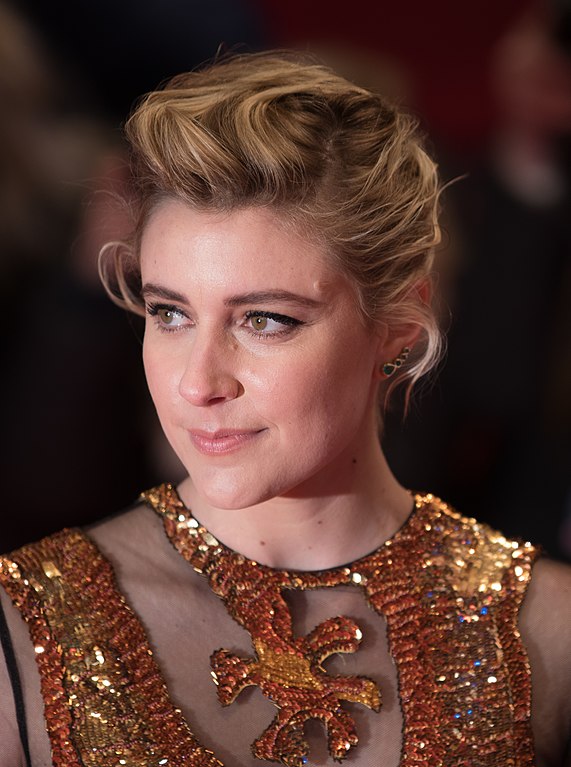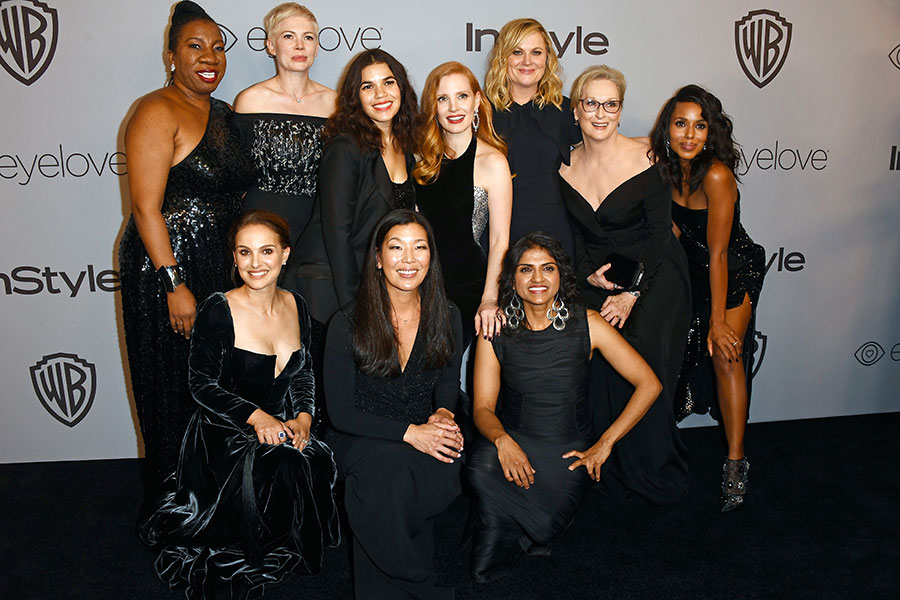It’s that time of year again, the red carpet has been rolled out and some of Hollywood’s top stars are getting ready for award season. On the 5th of January the Golden Globes kicked things off, but now all eyes are on the upcoming Oscars. This year’s ceremony is bound to be an entertaining watch with heavy hitters like Quentin Tarantino and Martin Scorsese competing in multiple categories, from Best Director to Best Picture.
Nominations for the 2020 ceremony were released on the 13th of January and have seen a huge amount of backlash erupt all over social media. Particularly around the individuals the Academy of Motion Picture Arts and Sciences chose to honour in the prestigious category of Best Director. This year the men up for this accolade are, Martin Scorsese for The Irishman, Bong Joon-Ho for Parasite, Quentin Tarantino for Once Upon A Time in Hollywood, Todd Phillips for Joker and Sam Mendes for 1917. In the tradition of the Oscars, all the nominees are men. Unfortunately, Greta Gerwig’s Little Women or Lulu Wang’s The Farewell did not make the cut this year much to the chagrin of critics and fans alike.

Lulu Wang, director of The Farewell 
Greta Gerwig, director of Little Women
Florence Pugh, who stared in Gerwig’s adaptation of Louisa May Alcott’s novel, shared her opinion about the five male nominees in an interview with Variety, saying: “I’m happy that everybody is upset. It’s great when you don’t need to point out the obvious.”
Gerwig’s and Wang’s absence from the list of nominees comes as no surprise, as the Academy has a history of overlooking the works of female directors in the industry. Over the past 92 years, a whopping total of 5 women have been nominated for Best Director. Only ONE has actually won in that category. That honour goes to Kathryn Bigelow in 2009 for her movie The Hurt Locker.

Many entertainment industry observers are not surprised over the fierce backlash towards the academy’s picks. They say it’s because it comes in a year in which women made historic strides behind the camera, directing a record number of blockbusters from Captain Marvel to Hustlers, which has been completely ignored in this years Oscars. Even actors have chimed in to share their opinion about this issue.
Florence Pugh said: “I think everybody’s angry and quite rightly so. I can’t believe it’s happened again, but I don’t really know how to solve it. I don’t know what the answer is, other than we’re talking about it.”
It’s hard to pin point exactly how or why female-made movies are constantly overlooked by the academy. Yuvi Mahen, a media studies student from the University of Norwich, said: “There’s a lot of factors that contribute to that but with Hollywood, once the hype for a movement dies down, people within the industry forget about it.”
In saying this, she is referencing how public opinion has a way of shaping or influencing the industry but only for a short amount of time. While there has been a growing push for more movies made, produced and written by women, there is still a lot of work that needs to happen to make the industry more welcoming for these movies. Starting with the nominations for Best Director.

Admittedly, when looking at the movies up for the most awards individually, they all have qualities that show why they are deserving of an Oscar win. From brilliant cinematography to superb directing, it’s understandable why Scorsesse and Tarantino are among some of Hollywood’s greatest directors and why they have become the Academy’s favourite picks during the awards season.
However, this also reveals an ugly truth about the awards and about one of the academy’s worst habits; the celebration of derivative works by established white men who have worked in the industry for decades. Yuvi shares this belief saying, “Once you’ve made a name the academy just sticks with you.” Suggesting that its harder for an up and coming director to get recognised by the academy because there is this preference for directors who have been nominated in the past, creating a sense of predictability when it comes to awards season. She admits that there has been a lack of female directors represented in the Oscars but fundamentally the way the movies are selected by the academy should change.
She said: “Perhaps it is time for more attention to be given to films that do not have a big name attached to it because a famous director is attached to a movie, there is an immediate bias towards that particular film.”
Another fundamental issue with Hollywood is how quickly people stop caring about an issue. They will fight for something for a couple of months and once the hype for that movement dies down, they move onto the next big topic that is making global headlines. This is most obvious when talking about the Me Too movement. Last year celebrities all showed their solidarity with the movement by wearing badges on the red carpet. This year no mention has been made about the social movement and illustrates how quickly Hollywood moves on to the next big issue.

While there is now a lot of people talking about the importance of representation at the Oscars and other award ceremonies, this conversation needs to continue for real change to happen, a point shared by Yuvi. She believes that if people just move on after this issue dies down nothing will change and everything will stay the same. She said: “I love Hollywood but there’s just so many things about it that make it seem fake.”
Overall, this year’s Oscars ceremony is bound to be entertaining. But let’s not forget about all the filmmakers and actors that have been snubbed. Merely because of their gender, race and skin colour. Here’s to Awkwafina (The Farewell), Lupita Nyong’o (Us) and Jamie Foxx (Just Mercy) all of whom have been overlooked by the academy this year for their outstanding performances.


Be the first to comment on "Oscar Snubs, who the academy left behind"